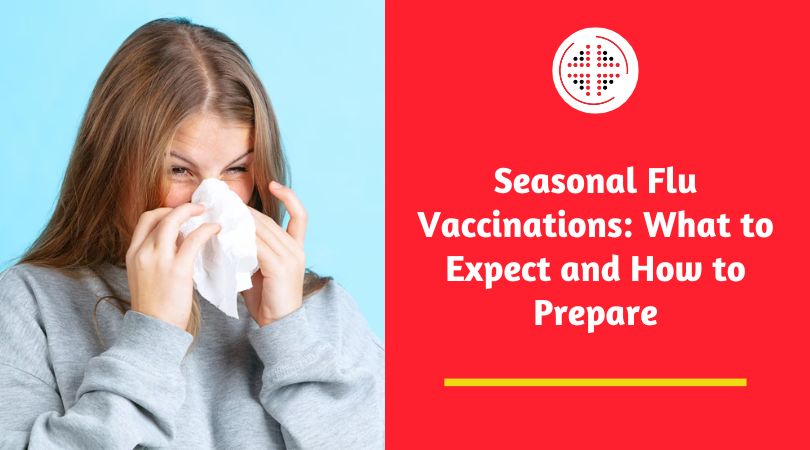


With autumn's arrival and the chill in the air, the flu season is just around the corner. It's a signal to prepare for flu season. Seasonal flu vaccinations are crucial for safeguarding your health during this time. These vaccines are updated annually to match the most common flu strains, effectively protecting against illness.
According to the World Health Organization (WHO), seasonal flu affects up to 1 billion people worldwide yearly, predominantly during winter.
This blog will help you explore how flu vaccines work, their benefits, and when to get flu shots.
Seasonal flu vaccines are specifically formulated to protect against influenza viruses, which research indicates will be most common during the upcoming flu season. These vaccines are updated annually based on the flu vaccine updates from health organizations, ensuring they remain effective against the most prevalent strains.
This targeted approach helps your body build immunity against the flu, making it less likely to contract the illness or experience severe complications.
Flu vaccines work by mimicking a natural infection without causing the actual illness:
There are various flu vaccines available, including trivalent and quadrivalent options. Trivalent vaccines offer protection against three prevalent strains, while quadrivalent vaccines provide broader coverage against four strains.
Widespread vaccination is a key strategy in reducing the risk of flu outbreaks. When a notable portion of the population is vaccinated, it creates herd immunity. Reducing the widespread prevalence of the virus helps protect those unable to receive the vaccine, such as individuals with certain medical conditions or young children.
The broader the vaccination coverage, the more useful it is in flu prevention. This collective immunity defends individual health and contributes to community well-being.
Getting vaccinated offers a multitude of benefits, both for yourself and the community:
Even with the clear advantages, persistent misconceptions about flu vaccines often prevent individuals from choosing to get vaccinated. Some common myths, along with their truths, include:
The CDC recommends getting vaccinated ideally by the end of October, although vaccination is beneficial throughout flu season.
You have several options for getting vaccinated, including:
The positive impact of flu vaccines on public health is well-established. Numerous studies show a clear correlation between higher vaccination rates and reduced flu outbreaks and hospitalizations. For instance, in flu vaccine updates from 2019 to 2020, areas with higher vaccination rates reported significantly fewer cases and complications.
Flu vaccinations contribute to general public health strategies and improve community health outcomes.
Seasonal flu vaccinations have a significant impact on public health. Historical data and case studies show widespread immunization can decrease flu-related illnesses and deaths. By supporting overall public health systems, flu vaccinations help mitigate the burden on healthcare systems and boost community health.
Don't let the flu catch you off guard this season! Secure your seasonal flu vaccination today at MI Express Urgent Care. Our easy-to-access clinics are ready to help you stay protected against the flu.
Book your appointment now to stay ahead of flu season and safeguard your health and those around you.